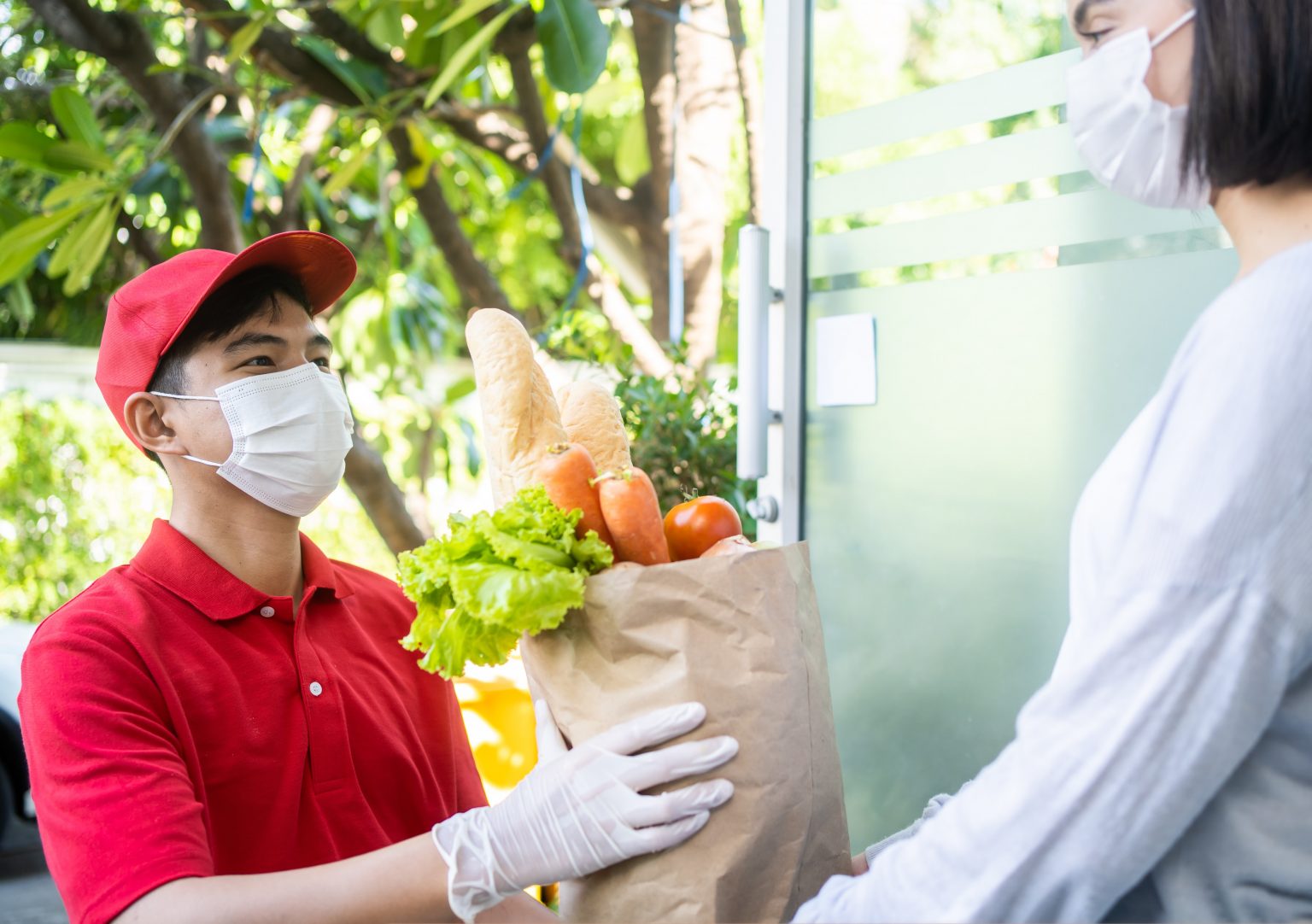Last Updated on March 18, 2024 by Admin
In an era marked by groundbreaking innovations that touch every aspect of our daily meals, the unsung heroes, the Food Technologists, often work tirelessly behind the curtains. With their expertise and passion, these Food Technologists continuously redefine what’s possible in the culinary world. Through their efforts, we witness a blend of science and art, ensuring that our meals are palatable but also nutritious and safe.
This article sheds light on the intricacies and vast area of the food technology course, looking into its multifaceted dimensions, details, and importance in our lives.
What is a Food Technology Course?
It emerges as an educational journey combining biochemistry, microbiology, nutrition, and chemical engineering knowledge. So, what is a food technology course? It is a mix of sciences designed to understand, create, and improve foods essential to our everyday routines and cultural traditions.
A Glimpse into the Course Design
Diving deeper into the food technology course details, one uncovers an intricate and well-structured curriculum. The course is carefully curated to ensure learners grasp the subject’s complexities. It starts with understanding the fundamental molecules that make up our food. It transitions to cutting-edge techniques and methodologies that have transformed and elevated the culinary arts.
Reasons to Choose a Food Technology Course
Committing to a food technology course goes beyond the allure of academic achievements. It’s an invitation to quench an inherent thirst for understanding the magic behind the meals we consume. For those fascinated by the underlying science of our diets and motivated to create innovative, safe, and eco-friendly food solutions, this course becomes a guiding light, leading them to their passion.
BSc in Food Technology
The BSc food technology course details the foundation for those contemplating an undergraduate journey. Typically spanning three to four years, depending on the institution and location, a BSc in Food Technology offers theoretical knowledge and hands-on lab experiences.
B.Tech in Food Technology
For those seeking a more specialised approach, a B.Tech in Food Technology provides a comprehensive blend of engineering and food science. This program typically spans four years and combines core food technology concepts with engineering principles.
B.Voc in Food Technology
B.Voc (Bachelor of Vocation) in Food Technology caters to those inclined towards a more vocational and skill-oriented education. This program, usually spanning three years, focuses on practical training, ensuring graduates are adept at handling real-world scenarios in food processing, quality control, and innovation.
Distinctive Aspects of the BSc, B.Tech and B.Voc Program
Delving deeper into BSc food technology course details, the program unfolds a diverse learning modules. Students undergo intensive sessions to understand food microbiology, the science of fermentation, the legalities governing food, and the innovations in packaging. Each segment is meticulously designed to prepare students for the real-world challenges of the food industry.
B.Tech in Food Technology offers a specialised fusion of engineering and food science. Spanning four years, it deals with advanced topics like food processing technology, quality assurance, and food safety management. It provides students with a technical edge for specialized roles in the food industry.
Catering to a hands-on approach, B.Voc in Food Technology prioritises practical training. Emphasising real-world scenarios in food processing, quality control, and innovation, this program blends theoretical knowledge with applied skills, preparing graduates for immediate industry integration.
Career Horizons Post-Course
Completing a food technology course opens up many professional avenues.
1. Bread & Bakery: Careers in this sector range from Bakery Production Managers, who oversee the baking process and ensure product quality, to Research and Development Specialists, who innovate new types of bread and bakery products, adapting to consumer preferences and nutritional trends.
2. Fruits and Vegetables: Job roles include Quality Assurance Managers, ensuring fruits and vegetables meet health standards, and Post-Harvest Technology Specialists, focusing on storage, packaging, and distribution methods to extend shelf life and maintain quality.
3. Food Grain Milling: Professionals can pursue careers as Milling Technologists, optimizing the grain milling process for efficiency and quality, or as Supply Chain Managers, ensuring the seamless flow of grains to processing plants and finally to consumers.
4. Dairy Products: This sector offers roles like Dairy Technologists, who work on developing and improving dairy processing methods and products, and Quality Control Analysts, who monitor the safety and quality of dairy products.
5. Fish and Seafood: Careers encompass Seafood Processing Technologists, focusing on the safe and efficient processing of seafood, and Quality Assurance Specialists, ensuring products meet regulatory and consumer standards.
6. Packaged Food: Opportunities include Food Packaging Technologists, innovating sustainable and functional packaging solutions, and Product Development Managers, who conceptualise and bring new packaged food products to market.
7. Multi-Sectoral: This broad category includes roles like Food Safety Auditors, assessing and certifying food products and processes across sectors, and Regulatory Affairs Specialists, ensuring compliance with food laws and regulations.
Read Also – Various Kinds of Food Processing Technology Course from The House Of FICSI
Considering Further Specialization Post-BSc?
After completing a BSc in Food Technology, individuals often pursue advanced studies to deepen their expertise and enhance career prospects. Pursuing an M.Sc in Food Technology or related fields offers an opportunity to specialise further. Additionally, top M.Tech programs in food technology, focusing on areas like quality control, sales, or even emerging fields like artificial intelligence (AI), provide avenues for advanced learning and specialisation. Furthermore, individuals can opt for diploma programs in quality control to gain specific skills and certifications, bolstering their credentials for roles in quality assurance and regulatory compliance within the food industry.
Emerging Trends in Food Technology
Food technology is ever-evolving, constantly shaped by rapid technological strides and a changing consumer landscape. Some of the recent developments include:
- Lab-grown Meats: As sustainability concerns rise, lab-grown or cultured meats offer a solution. These are produced by cultivating animal cells, a method that could drastically reduce the environmental footprint of meat production.
- AI-driven Nutrition: With the advent of artificial intelligence (AI) in almost every sector, the food industry is close behind. AI now analyses individual health metrics and provides personalised nutrition recommendations, ensuring optimal health and well-being.
- Smart Packaging: Moving beyond the traditional role of merely protecting its contents, today’s food packaging can change colour to indicate freshness, release preservatives to extend shelf-life, and even interact with consumers via augmented reality.
Challenges and Ethical Considerations in Food Technology
While the advancements in food technology pave the way for an improved food landscape, they also present specific challenges and ethical concerns:
- Genetically Modified Organisms (GMOs): While GMOs can improve crop yields and nutritional content, they also raise concerns about long-term health effects, biodiversity loss, and creating monopolistic seed markets.
- Environmental Impact: While solving one issue, some food tech solutions might exacerbate another. For instance, certain bioplastics used as sustainable packaging can harm marine life if they end up in oceans.
- Cultural and Ethical Implications: Lab-grown meats or altering the genetic makeup of plants might conflict with cultural beliefs or ethical considerations of playing ‘nature’.
Role of Training in Food Technology
Training plays an indispensable role in the field of food technology. As the industry continues to evolve with new techniques, machinery, and ethical challenges, training ensures that professionals remain at the cutting edge:
- Skill Enhancement: Regular training sessions equip food technologists with the latest skills, from mastering new laboratory equipment to understanding the intricacies of emerging food processing methods.
- Safety Protocols: Given the direct impact of food products on human health, understanding and adhering to safety protocols is paramount. Continuous training ensures these guidelines are met consistently, ensuring food quality and safety.
- Ethical Decision-making: As technology offers more tools to manipulate and enhance food, training provides professionals with the framework to make informed, ethical decisions.
- Interdisciplinary Knowledge: The world of food technology intersects with various fields, from nutrition science to logistics. Training provides a comprehensive view, ensuring professionals understand the broader implications of their work.
The Significance of Selecting the Right Institute for Your Food Technology Course
Choosing the right educational institute for pursuing a food technology course is a decision of profound importance. A well-selected institution ensures an industry-relevant curriculum that remains updated with the rapidly evolving landscape of food technology. Beyond academic rigour, the presence of experienced faculty members, who bring a blend of scholarly insights and real-world applications, becomes invaluable.
Furthermore, leading institutions typically collaborate with industry stalwarts, paving the way for enriching internships, workshops, and invaluable networking opportunities. This network enhances the learning experience and can prove pivotal for future career prospects.
Additionally, globally recognized accreditations associated with premier institutes guarantee that the education you receive adheres to international standards and is universally respected. Lastly, many of these esteemed institutes prioritise holistic development. They embed soft skills training, emphasise the importance of ethical considerations, and often have robust placement services, ensuring students are not only well-equipped with knowledge.
International Perspectives on Food Technology Education
The food technology course curriculum and focus can vary significantly across countries, reflecting their unique cultural, economic, and agricultural contexts:
- European Focus: Given the EU’s stringent food safety laws, European institutions might strongly emphasise global food regulations. Cheese and wine technology, given their prominence in European culture, might also be highlighted.
- Asian Perspective: In countries like India or China, the curriculum might delve deeper into the technology behind traditional foods, spices, and preservation methods specific to the region.
- North American Approach: Institutions in the US and Canada, given their robust research focus, might emphasise food biotechnology, GMOs, and the business aspect of food technology.
Conclusion
Today, science, new ideas, and everyday life come together in food technology. Take a course in food technology, and you’ll be part of a movement that changes the future of health, nutrition, and sustainability. We are on the verge of new food innovations and solutions. Now is the perfect time to get involved in this exciting field and help make the future healthy and tastier.













